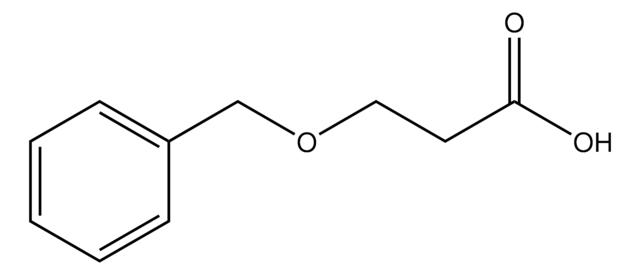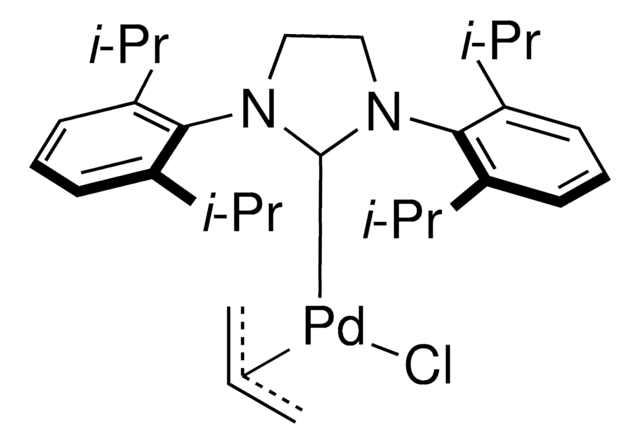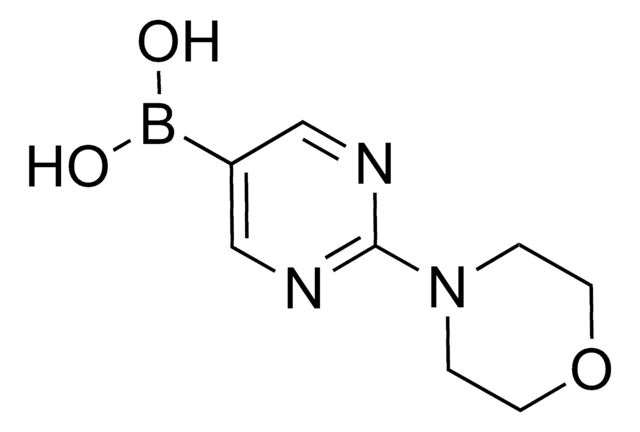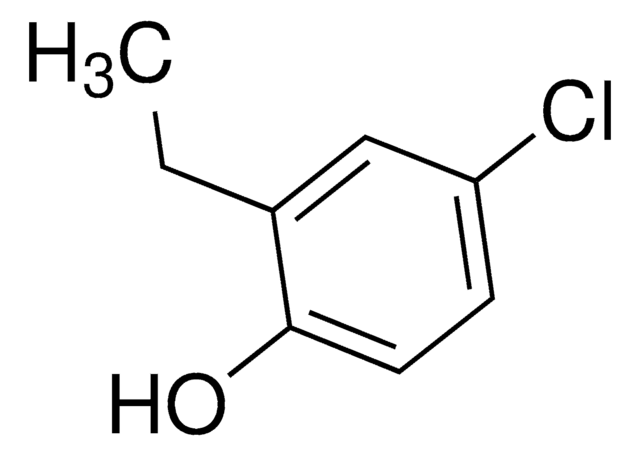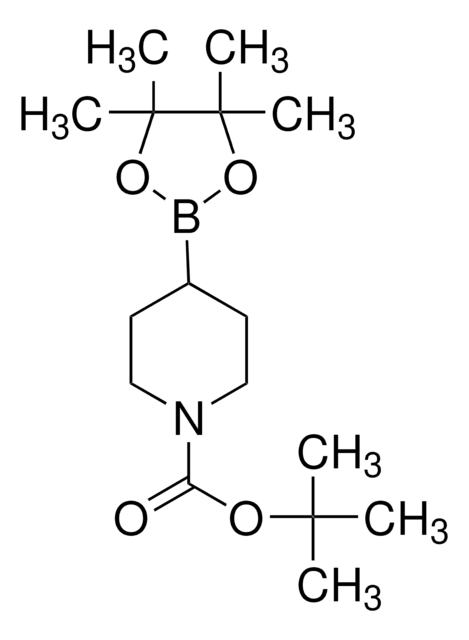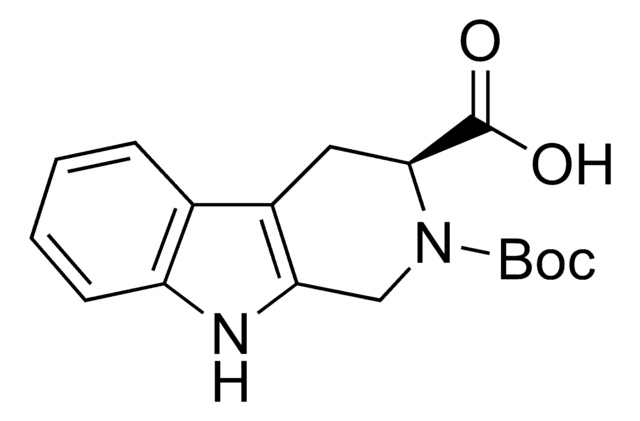279552
4-Chloro-3-ethylphenol
97%
Iniciar sesiónpara Ver la Fijación de precios por contrato y de la organización
About This Item
Fórmula lineal:
ClC6H3(C2H5)OH
Número de CAS:
Peso molecular:
156.61
Número CE:
Número MDL:
Código UNSPSC:
12352100
ID de la sustancia en PubChem:
NACRES:
NA.22
Productos recomendados
Ensayo
97%
Formulario
solid
mp
45-50 °C (lit.)
grupo funcional
chloro
cadena SMILES
CCc1cc(O)ccc1Cl
InChI
1S/C8H9ClO/c1-2-6-5-7(10)3-4-8(6)9/h3-5,10H,2H2,1H3
Clave InChI
DVKVZPIRWWREJC-UHFFFAOYSA-N
Aplicación
4-Chloro-3-ethylphenol is a ryanodine receptor antagonist and is commonly used as research tool and diagnostic reagent for malignant hyperthermia.
Palabra de señalización
Warning
Frases de peligro
Consejos de prudencia
Clasificaciones de peligro
Eye Irrit. 2 - Skin Irrit. 2 - STOT SE 3
Órganos de actuación
Respiratory system
Código de clase de almacenamiento
11 - Combustible Solids
Clase de riesgo para el agua (WGK)
WGK 3
Punto de inflamabilidad (°F)
235.4 °F - closed cup
Punto de inflamabilidad (°C)
113 °C - closed cup
Equipo de protección personal
dust mask type N95 (US), Eyeshields, Gloves
Elija entre una de las versiones más recientes:
¿Ya tiene este producto?
Encuentre la documentación para los productos que ha comprado recientemente en la Biblioteca de documentos.
M U Gerbershagen et al.
European journal of anaesthesiology, 19(2), 135-140 (2002-05-10)
The in vitro contracture test with halothane and caffeine is the current gold standard for diagnosis of malignant hyperthermia. This test has a sensitivity of 99.0% but a specificity of only 93.6%. Therefore, an alternative drug is desirable which distinguishes
A M Low et al.
British journal of pharmacology, 122(3), 504-510 (1997-11-14)
1. Recently, 4-chloro-3-ethyl phenol (CEP) has been shown to cause the release of internally stored Ca2+ apparently through ryanodine-sensitive Ca2+ channels, in fractionated skeletal muscle terminal cisternae and in a variety of non-excitable cell types. Its action on smooth muscle
Bo Zeng et al.
British journal of pharmacology, 171(5), 1250-1259 (2014-03-29)
Depletion of the Ca(2+) store by ryanodine receptor (RyR) agonists induces store-operated Ca(2+) entry (SOCE). 4-Chloro-3-ethylphenol (4-CEP) and 4-chloro-m-cresol (4-CmC) are RyR agonists commonly used as research tools and diagnostic reagents for malignant hyperthermia. Here, we investigated the effects of
Francisco H Andrade et al.
Investigative ophthalmology & visual science, 46(12), 4541-4547 (2005-11-24)
The ultrafast extraocular muscles necessitate tight regulation of free cytosolic Ca2+ concentration ([Ca2+]i). Mitochondrial Ca2+ influx may be fast enough for this role. In the present study, three hypotheses were tested: (1) Mitochondrial Ca2+ uptake regulates [Ca2+]i and production of
M U Gerbershagen et al.
Anasthesiologie, Intensivmedizin, Notfallmedizin, Schmerztherapie : AINS, 39(2), 81-86 (2004-02-10)
The diagnosis of malignant hyperthermia is currently performed with the in-vitro contracture test (IVCT) with halothane and caffeine. This test has a sensitivity of 99.0 % but only a specificity of 93.6 %. A cumulative IVCT with 4-chloro-3-ethyl-phenole (CEP) has
Nuestro equipo de científicos tiene experiencia en todas las áreas de investigación: Ciencias de la vida, Ciencia de los materiales, Síntesis química, Cromatografía, Analítica y muchas otras.
Póngase en contacto con el Servicio técnico